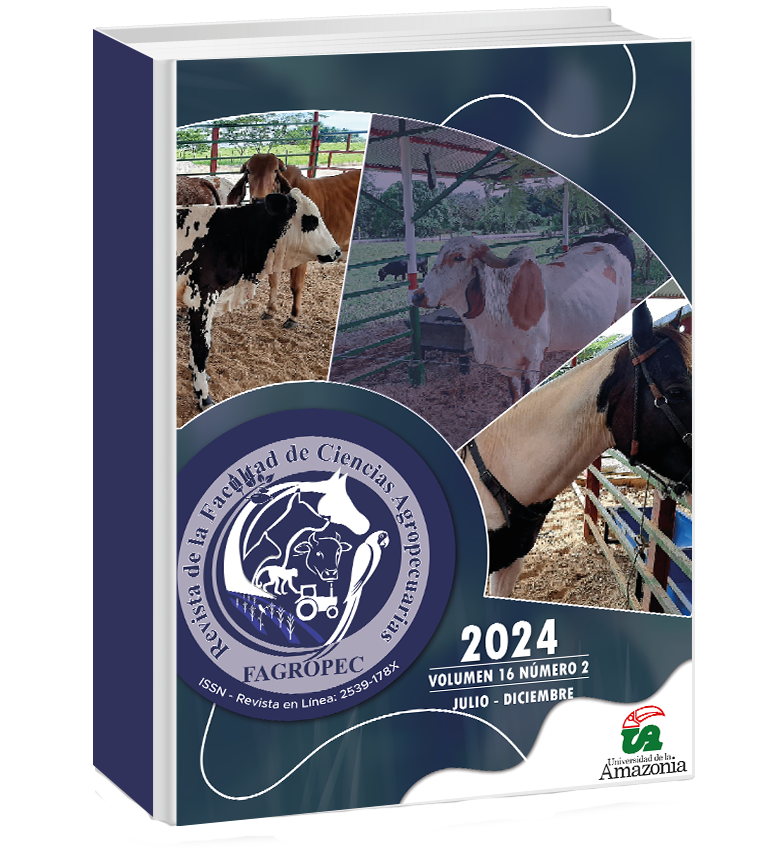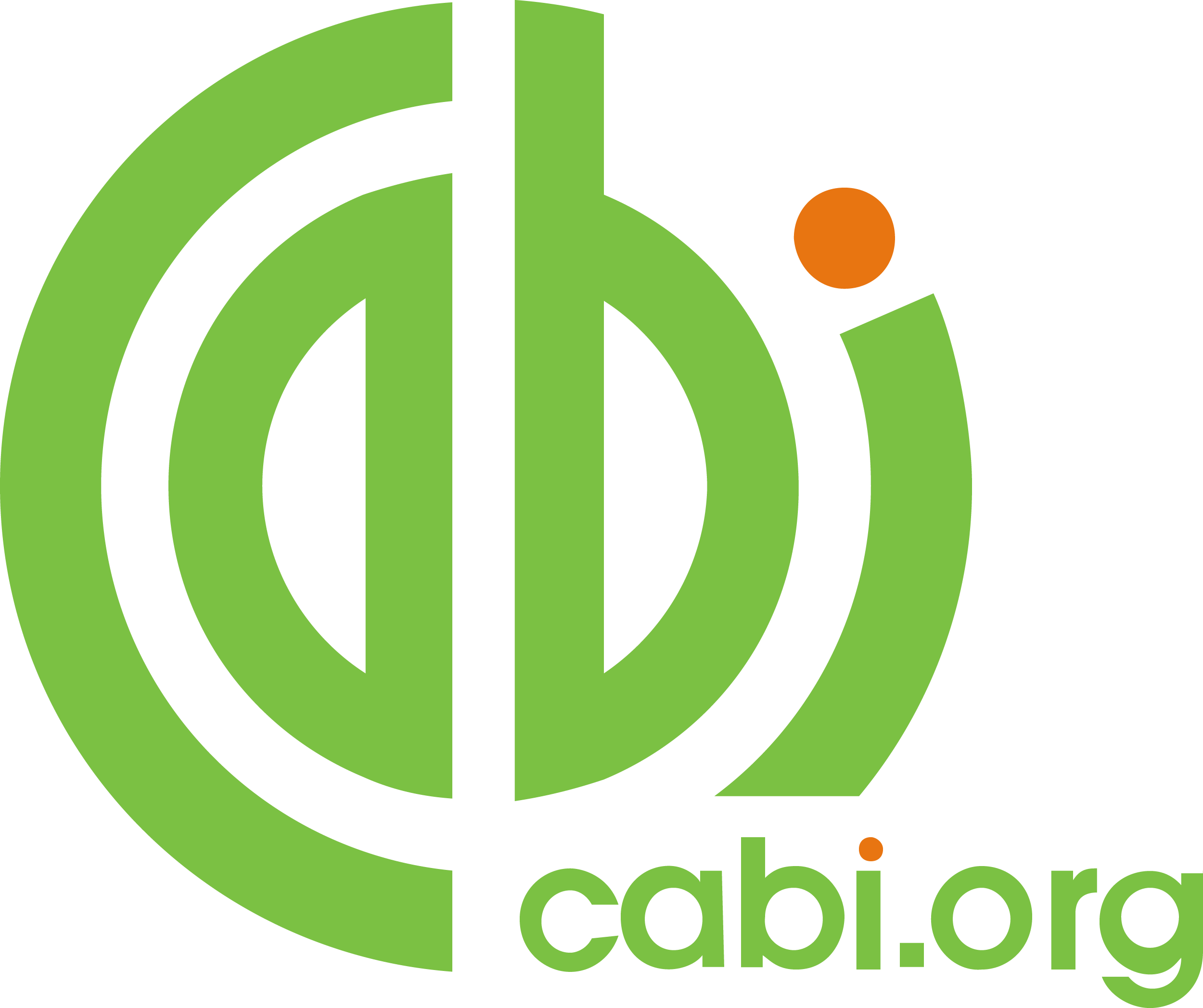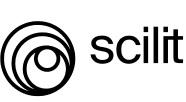Agricultural production and climate change in Irrigation District 003 Tula, Hidalgo, Mexico
DOI:
https://doi.org/10.47847/fagropec.v16n2a1Keywords:
harvested area, crops, agricultural cycle, water pollutionAbstract
The intensification of water consumption has caused the degradation of the main water ecosystems. The objective was to describe the main crops that are harvested in the Irrigation District 003 Tula, Hidalgo, Mexico, and how the use of wastewater contributes to agricultural production and reduce the effects of climate change. The main crops that were harvested were forage oats in the autumn-winter cycle, grain corn in spring-summer and alfalfa in perennial crops. These crops slightly tolerate soil salinity and do not have restrictions regarding water quality, as is the case with some vegetables. Despite the conditions of water contamination, the region of Irrigation District 003 Tula is the agricultural engine, the main producer of grains in the State of Hidalgo, which represents contributing to the mitigation of climate change by saving water, fertilizer savings, less gas emissions, greater food security and a source of income for the families of small producers.
Downloads
References
Al-Ghazawi, Z., & Alawneh, R. (2021). Use of artificial neural network for predicting effluent quality parameters and enabling wastewater reuse for climate change resilience – A case from Jordan. Journal of Water Process Engineering, 44, 102423. https://doi.org/10.1016/J.JWPE.2021.102423
Alcon, F., Pedrero, F., Martin, J., Arcas, N., Alarcon, J. J., & De Miguel, M. D. (2010). The non-market value of reclaimed wastewater for use in agriculture: A contingent valuation approach. Spanish Journal of Agricultural Research, 8(SUPPL. 2), 1–6. https://doi.org/10.5424/sjar/201008s2-1361
Aznar, J. A., Belmonte, L. J., Velasco, J. F., & Manzano, F. (2018). Economic analysis of sustainable water use: A review of worldwide research. Journal of Cleaner Production, 198, 1120–1132. https://doi.org/10.1016/j.jclepro.2018.07.066
Aznar, J. A., Belmonte, L. J., Velasco, J. F., & Valera, D. L. (2021). Farmers’ profiles and behaviours toward desalinated seawater for irrigation: Insights from South-east Spain. Journal of Cleaner Production, 296. https://doi.org/10.1016/j.jclepro.2021.126568
Bakopoulou, S., Polyzos, S., & Kungolos, A. (2010). Investigation of farmers’ willingness to pay for using recycled water for irrigation in Thessaly region, Greece. Desalination, 250(1), 329–334. https://doi.org/10.1016/j.desal.2009.09.051
Bouwer, H. (2000). Integrated water management: Emerging issues and challenges. Agricultural Water Management, 45(3), 217–228. https://doi.org/10.1016/S0378-3774(00)00092-5
Caucci, S., & Hettiarachchi, H. (2022). Wastewater Irrigation in the Mezquital Valley, Mexico: Solving a Century-Old Problem with the Nexus Approach (Issue March). https://doi.org/10.53325/drdq8710
Chávez, A., Rodas, K., Prado, B., Thompson, R., & Jiménez, B. (2012). An evaluation of the effects of changing wastewater irrigation regime for the production of alfalfa (Medicago sativa). Agricultural Water Management, 113, 76–84. https://doi.org/10.1016/J.AGWAT.2012.06.021
Cisneros, O., & Saucedo, H. (2016). Reúso de aguas residuales en la agricultura. IMTA. www.gob.mx/imta
CONAGUA. (2020). Plan de Riego para el año agrícola 2020-2021. Dirección Local Hidalgo.
CONAGUA. (2023). Estadísticas agrícolas de los distritos de riego. https://www.gob.mx/conagua/documentos/estadisticas-agricolas-de-los-distritos-de-riego
Contreras-Román, R. H. (2018). Volver a la tierra: retorno migratorio y recampesinización forzada en el Valle del Mezquital, México. Perspectivas Rurales Nueva Época, 16(32), 16–32. https://doi.org/https://doi.org/10.15359/prne.16-32.3
Durán, J. C., Jiménez, B., Rodríguez, M., & Prado, B. (2021). The Mezquital Valley from the perspective of the new Dryland Development Paradigm (DDP): present and future challenges to achieve sustainable development. Current Opinion in Environmental Sustainability, 48, 139–150. https://doi.org/10.1016/j.cosust.2021.01.005
Espira, L. M., Contreras, J. D., Felix-Arellano, E. E., Siebe, C., Mazari-Hiriart, M., Riojas-Rodríguez, H., & Eisenberg, J. N. S. (2024). A comparative analysis of regional infection risk due to wastewater recontamination in the Mezquital Valley, Mexico. Science of The Total Environment, 919, 170615. https://doi.org/10.1016/J.SCITOTENV.2024.170615
Fagundes, T. S., & Marques, R. C. (2023). Challenges of recycled water pricing. Utilities Policy, 82, 101569. https://doi.org/10.1016/J.JUP.2023.101569
García-Salazar, E. M. (2019). El agua residual como generadora del espacio de la actividad agrícola en el Valle del Mezquital, Hidalgo, México. Estudios Sociales, 29(54), 2–34. https://doi.org/https://doi.org/10.24836/es.v29i54.741
Gleick, P. H. (2013). Una Gota Cae En El Océano. Finanzas & Desarrollo, 50(3), 12–15. https://www.imf.org/external/pubs/ft/fandd/spa/2013/09/index.htm
Hanjra, M. A., Blackwell, J., Carr, G., Zhang, F., & Jackson, T. M. (2012). Wastewater irrigation and environmental health: Implications for water governance and public policy. International Journal of Hygiene and Environmental Health, 215(3), 255–269. https://doi.org/10.1016/j.ijheh.2011.10.003
Hernández-González, D. E., Muñoz-Iniestra, D. J., López-Galindo, F., & Hernández-Moreno, M. M. (2018). Impacto del uso de la tierra en la calidad del suelo en una zona semiárida del Valle del Mezquital, Hidalgo, México. BIOCYT Biología Ciencia y Tecnología, 11(41–42), 792–807. https://doi.org/10.22201/FESI.20072082.2018.11.65833
Hughes, J., Cowper-Heays, K., Olesson, E., Bell, R., & Stroombergen, A. (2021). Impacts and implications of climate change on wastewater systems: A New Zealand perspective. Climate Risk Management, 31, 100262. https://doi.org/10.1016/J.CRM.2020.100262
INEGI. (2024). Índice Nacional de Precios al Consumidor (INPC). https://www.inegi.org.mx/temas/inpc/#tabulados
Jiménez-Cisneros, B. E., Siebe, G. C., & Cifuentes, G. E. (2005). El reúso intencional y no intencional del agua en el valle de Tula. In B. Jiménez & L. Marín (Eds.), El agua en México vista desde la academia (pp. 33–56). Academia Mexicana de Ciencias. https://agua.org.mx/wp-content/uploads/2010/12/El-agua-en-México-vista-desde-la-academia.pdf
Khalkhali, M., & Mo, W. (2020). The energy implication of climate change on urban wastewater systems. Journal of Cleaner Production, 267, 121905. https://doi.org/10.1016/J.JCLEPRO.2020.121905
Moncayo-Cassiano, V., Rivas-Lucero, B. A., Guerrero-Morales, S., Zúñiga-Avila, G., & Magaña-Magaña, J. E. (2017). Vista de Análisis de la movilidad de pesticidas en los suelos de la región centro-sur del estado de Chihuahua. Biológico Agropecuaria Tuxpan, 5(2), 9–17. https://doi.org/https://doi.org/10.47808/revistabioagro.v5i2.104
Ortega-Larrocea, M. P., Siebe, C., Bécard, G., Méndez, I., & Webster, R. (2001). Impact of a century of wastewater irrigation on the abundance of arbuscular mycorrhizal spores in the soil of the Mezquital Valley of Mexico. Applied Soil Ecology, 16(2), 149–157. https://doi.org/10.1016/S0929-1393(00)00105-0
Pérez-Díaz, J. P., Ortega-Escobar, H. M., Ramírez-Ayala, C., Flores-Magdaleno, H., Sánchez-Bernal, E. I., Can-Chulim, Á., & Mancilla-Villa, O. R. (2019). Evaluación de la calidad del agua residual para el riego agrícola en Valle del Mezquital, Hidalgo. Actauniversitaria, 29, 1–21. https://doi.org/http://doi.org/10.15174/au.2019.2117
Resende, M. ;, Freitas, F. C. ;, Aníbal, B. ;, Martins, J. ;, Duarte, A. ;, Urban, A., Moreira Da Silva, M., Resende, F. C., Freitas, B., Aníbal, J., Martins, A., & Duarte, A. (2022). Urban Wastewater Reuse for Citrus Irrigation in Algarve, Portugal—Environmental Benefits and Carbon Fluxes. Sustainability 2022, Vol. 14, Page 10715, 14(17), 10715. https://doi.org/10.3390/SU141710715
Tarhule, A. (2016). The Future of Water: Prospects and Challenges for Water Management in the 21st Century. In Competition for Water Resources: Experiences and Management Approaches in the US and Europe (pp. 442–454). Elsevier Inc. https://doi.org/10.1016/B978-0-12-803237-4.00025-2
Trinh, L. T., Duong, C. C., Van Der Steen, P., & Lens, P. N. L. (2013). Exploring the potential for wastewater reuse in agriculture as a climate change adaptation measure for Can Tho City, Vietnam. Agricultural Water Management, 128, 43–54. https://doi.org/10.1016/j.agwat.2013.06.003
Ward, F. A., & Michelsen, A. (2002). The economic value of water in agriculture: Concepts and policy applications. Water Policy, 4(5), 423–446. https://doi.org/10.1016/S1366-7017(02)00039-9
Zhang, X. nan, Guo, Q. ping, Shen, X. xue, Yu, S. wen, & Qiu, G. yu. (2015). Water quality, agriculture and food safety in China: Current situation, trends, interdependencies, and management. Journal of Integrative Agriculture, 14(11), 2365–2379. https://doi.org/10.1016/S2095-3119(15)61128-5
Downloads
Published
Issue
Section
License

This work is licensed under a Creative Commons Attribution-NonCommercial-ShareAlike 4.0 International License.
























